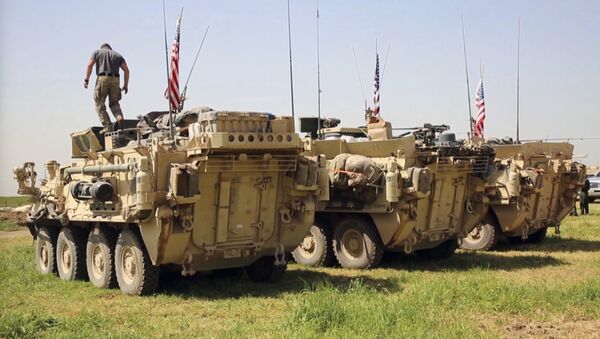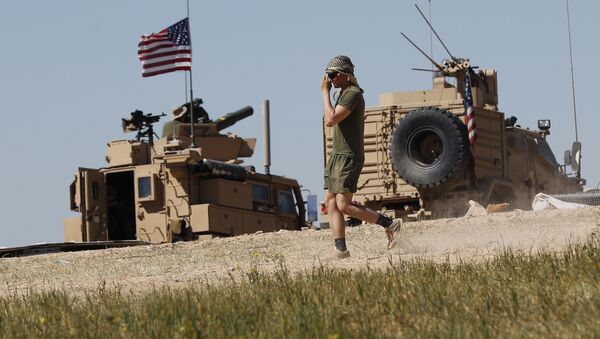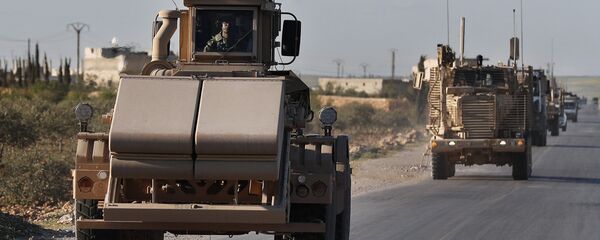Lebanese political commentator Raid al-Masri said that President Donald Trump's recent statement on the withdrawal of US forces from Syria and the subsequent U-turn was "the result of pressure from different political forces and military leadership on the decision-making."
"Also, there was a geopolitical meaning in it. Trump's statement became a provocation to obtain additional funding from Saudi Arabia. In exchange for new [financial] injections, the Americans went ahead with the military operation in Syria," al-Masri said.
READ MORE: Analyst Reveals Consequences of US Contradictory Messages in Syria
He added that Washington knows that the US military's presence in Syria does not affect the political settlement in this Arab country or the course of the military operation.
"Still, they decided to play this cheap provocation for Saudi Arabian Crown Prince Mohammed bin Salman, who fully sticks to the plan outlined by the Americans and the Israelis," al-Masri underlined.
He was echoed by Syrian political scientist Mulhem al-Khan, who attributed US statements on Syria with Daesh* recently stepping up activity.

"The public expression of support for Abu Bakr al-Baghdadi did not happen by itself. Someone has planned, supported and launched this action. Information about new money injections was followed by terrorists becoming more active – something that should prod us to closely monitor sources of their funding," al-Khan said.
He warned that al-Baghdadi now has the opportunity to interact with his supporters, which means that "he is quite able to revive his pseudo-caliphate in one form or another."
"The Americans are not considering the withdrawal of their forces from Syria because this is an expensive operation. Especially given that hefty sums were spent for training the Syrian Democratic Forces," al-Khan concluded.
Speaking at the US Institute of Peace in Washington earlier this week, General Joseph Votel, commander of US Central Command, made it clear that American troops will remain in Syria in the future.
"There still are some areas where they are present and that we will have to continue to operate on," Votel pointed out.
He was echoed by Brett McGurk, the US State Department's senior envoy to the anti-Daesh coalition, who said that the terrorist group has yet to be "finished."
READ MORE: US Mulled Sending More Troops to Syria Before Trump's Call to Leave – Reports
Their remarks came after President Donald Trump promised the US troops' early withdrawal from Syria. "We'll be coming out of Syria, like, very soon. Let the other people take care of it," Trump said during a speech in Ohio last week.
Shortly afterwards, he confirmed the move by saying that the US had "almost completed" the task of destroying Daesh in Syria and that he wants "to get out and bring our troops home."
The US military, which has been stationed in Syria since 2014, leads an allied coalition to fight Daesh in a mission that was approved neither by a UN mandate nor the Syrian government.
Damascus has repeatedly described the US military presence Syria as "illegal." Right now, there are reportedly about 2,000 US troops in the mostly Arab country.
The views and opinions expressed by Raid al-Masri and Mulhem al-Khan are those of the analysts and do not necessarily reflect those of Sputnik.
____________________________________________________________________________________
*Daesh (ISIL/ISIS/Islamic State), a terrorist group banned in Russia


